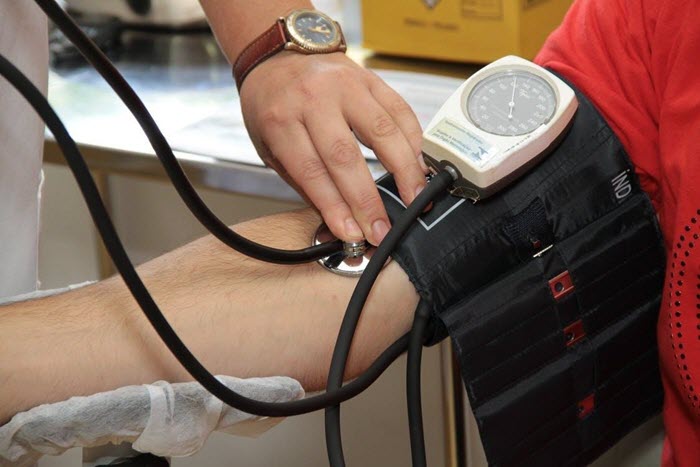Is High Cholesterol A Pre-Existing Condition For Life Insurance?

Edited Feb 18, 2022
Insurers classify high cholesterol, or hyperlipidemia, as a pre-existing condition that can raise your premiums or even prevent you from purchasing insurance. Many Americans are unaware that their high cholesterol is a leading factor in life insurance denials.
If you have high cholesterol now, it can lead to a risk of heart disease and other health problems later. Additionally, when high cholesterol stops you from purchasing affordable term life insurance, it can be a financial burden with far-reaching consequences.
When you’re planning for retirement or providing for your spouse or children, being denied life insurance has a ripple effect that crosses generations. It leaves your family members without crucial financial resources to pay bills, mortgages, and other final expenses.
Luckily, understanding pre-existing conditions like your high cholesterol can be the first step in preparing for the future.
High Cholesterol is a Pre-existing Condition
A benign pre-existing condition like high cholesterol can come as a surprise. No one “looks” like they have cholesterol problems and there may be no symptoms. Some physically fit adults are shocked to discover they have elevated lipids. None-the-less, insurance companies treat it as a serious health risk.
According to the Centers for Disease Control, millions of adults like you live with high cholesterol every day. They may never have serious complications, and they control it with diet, exercise, and medication.
If you’ve been diagnosed with high cholesterol as a pre-existing condition, life insurance companies are most concerned about the associated health risks like:
Coronary artery disease
Heart attack
Stroke
The good news for you is that cholesterol is treatable and many insurers will not automatically exclude you because of it.
To assess your personal risk, insurance companies rely on many individual factors. The most reliable way to find affordable rates and approval is to speak with insurance professionals about your application and let them know that you take high cholesterol as seriously as they do.
How Cholesterol Is Measured
When you’ve gotten your lipid panel results back, you will have a set of numbers that make up your cholesterol ratios and ascertain if you have hypercholesterolemia. Let’s take a peek at what those numbers mean.
The LDL cholesterol is a fatty appearing compound that can clog your arteries and increase your risk of experiencing a stroke or having cardiovascular disease. You need this number to be lower, ideally less than 100.
This number will be lower than 150. Having excess triglycerides may cause coronary artery disease in certain people.
Total blood cholesterol is a calculation looked at closely by underwriters to determine your danger when approving you for life insurance. Adding your HDL and LDL ratios combined with 20% of your triglycerides levels will give you the whole blood cholesterol level. The lower this number, the better for your health and life insurance premiums.
Insurance Companies Consider Other Pre-Existing Conditions
After you schedule a pre-insurance exam, be prepared to answer a long list of health questions. Insurance companies often consider positive lifestyle choices when assessing your health risks. During the screening process, you may be asked:
Do you exercise regularly?
Is your diet low in saturated fats?
Do you avoid trans fats and include high fiber foods in your choices?
Do you smoke?
Are you taking medications to control your cholesterol?
What is your BMI and do you monitor your weight as part of a health regimen?
Is there a family history of related medical conditions?
You may already have high cholesterol, but you can reduce your risk of complications. Explaining how you control your cholesterol may have a significant impact on coverage or premiums.
In addition, insurers will examine related conditions like age, diabetes, hypertension, and liver disease, among others.
You Can Still Find Affordable Options
Even if you have a pre-existing condition like high cholesterol, several companies continue to provide financial security and affordable term life insurance options. Before you assume you can’t buy coverage, always ask an agent familiar with insurance guidelines if you can qualify.
Every insurance company has its own acceptance standards and policies regarding pre-existing conditions. Never assume your pre-existing cholesterol diagnosis will prohibit you from providing loved ones with financial security.
Take The Next Step
To support you as you safeguard your family’s financial security, I’ve created an up-to-date life insurance guide for parents. My guide can help you with your long-term life insurance goals, especially with little kids at home!
Here at CB Acker Associates, we want to help you take care of your family. If you’re ready to find a policy that fits your needs and your budget, we can help!
With access to all the top-rated life insurance companies, we work extra hard to get you the best life insurance rates possible. You can even compare rates and benefits from over 40 providers with no obligation to buy here. Plus, it’s fast—under 60 seconds kind of fast.
Please, give us a call today at 650-969-5844 or email [email protected].




